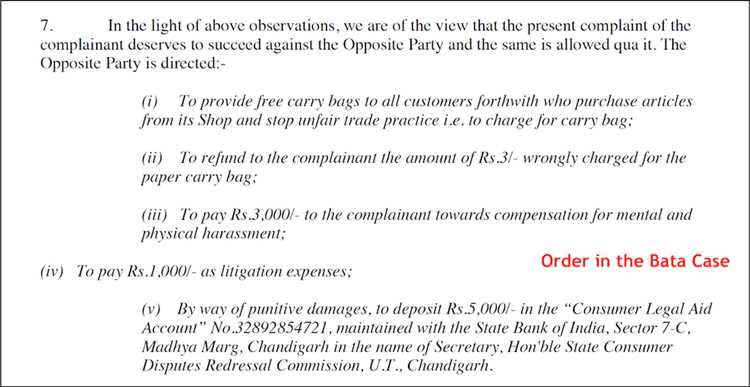
In recent years, the issue of paying for carry bags has become a topic of debate. Many people argue that it is unnecessary to pay for something that was once given for free. However, others believe that charging for carry bags is a step towards reducing plastic waste and encouraging people to be more environmentally conscious.
On one hand, those who oppose paying for carry bags argue that it is an additional cost that consumers should not have to bear. They believe that if stores want to reduce plastic waste, they should provide alternative options for carrying items, such as reusable bags, without charging extra for them.
On the other hand, proponents of paying for carry bags argue that it serves as a deterrent for excessive use and disposal of plastic bags. They believe that by charging a fee, people will think twice before taking a bag for every small purchase and will be more inclined to bring their own reusable bags. This, in turn, would lead to a significant reduction in plastic bag consumption and a positive impact on the environment.
In conclusion, while the debate continues, it is clear that the issue of paying for carry bags is not simply a matter of convenience or cost. It has wider implications for our environment and the future of sustainability. Whether or not it is necessary to pay for carry bags ultimately depends on our individual perspectives and priorities.
- Why should we pay for carry bags?
- 1. Encourages the use of reusable bags
- 2. Reduces environmental pollution
- Environmental impact of free carry bags
- Costs of providing free carry bags
- Alternative options:
- Conclusion
- Benefits of charging for carry bags
- Alternatives to plastic carry bags
- Government regulations on carry bags
- Consumer responsibility in reducing plastic waste
- undefined
- Why do some stores charge for carry bags?
- How much do stores usually charge for carry bags?
- Can I bring my own bag to avoid the charges?
- Do all stores charge for carry bags?
- What are the benefits of charging for carry bags?
- Why do some stores charge for carry bags?
Why should we pay for carry bags?

Many stores and retailers charge customers for providing them with carry bags, which has sparked debate among consumers and environmentalists. While some may argue that paying for carry bags is an unnecessary expense, there are several reasons why it is actually beneficial to do so.
1. Encourages the use of reusable bags
By charging for carry bags, stores are encouraging customers to bring their own reusable bags. This small step can have a significant impact on reducing plastic waste and harm to the environment. Reusable bags are more durable and can be used multiple times, eliminating the need for single-use plastic bags.
2. Reduces environmental pollution
Single-use plastic carry bags contribute to pollution and harm wildlife. They take hundreds of years to decompose, and many end up in our oceans, endangering marine life. By charging for carry bags, people are more likely to think twice before accepting a bag for every purchase, ultimately reducing plastic waste and pollution.
| Benefits of paying for carry bags: | Reduces plastic waste | Encourages the use of reusable bags | Helps protect the environment |
|---|---|---|---|
| 1 | ✔️ | ✔️ | ✔️ |
| 2 | ✔️ | ✔️ | ✔️ |
| 3 | ✔️ | ✔️ | ✔️ |
Overall, paying for carry bags may initially seem like an inconvenience, but it is a necessary step towards reducing plastic waste and protecting the environment. Encouraging the use of reusable bags and reducing pollution are just some of the many benefits of charging for carry bags.
Environmental impact of free carry bags

Free carry bags may seem convenient at first, but their environmental impact can be significant. These bags are often made from single-use materials such as plastic, which take hundreds of years to break down in the environment.
When disposed of improperly, free carry bags can end up in landfills or as litter in natural habitats. This can cause harm to wildlife, as animals may mistake the bags for food or become entangled in them, leading to injury or death.
Furthermore, the production of free carry bags contributes to pollution and resource depletion. The manufacturing process requires energy and natural resources, such as oil, to produce the materials needed for the bags. This extraction process can result in air and water pollution, as well as habitat destruction.
By charging for carry bags, it encourages consumers to bring their own reusable bags, which can help reduce the overall demand for single-use bags. Reusable bags are more durable and can be used multiple times, reducing the amount of waste generated.
In conclusion, the environmental impact of free carry bags is significant and detrimental. Charging for carry bags can help reduce their usage, promote the use of reusable bags, and alleviate the negative effects on the environment.
Costs of providing free carry bags

While offering free carry bags to customers may seem like a convenient and customer-friendly option, it can come with significant costs for businesses. These costs can include the expenses associated with purchasing and producing the bags, as well as the environmental impact of using single-use plastic bags.
Purchasing and producing bags:
For retailers, providing free carry bags means regularly purchasing large quantities of bags to meet customer demand. This can be a considerable expense, especially for businesses with high customer traffic. Additionally, the production of these bags requires materials and resources, such as plastic or paper, energy, and labor. These costs can quickly add up, affecting a company’s overall budget.
Environmental impact:
The use of single-use plastic bags, which are commonly provided for free, has a significant negative impact on the environment. These bags contribute to pollution and litter, particularly when they end up in landfills or as ocean waste. They also take hundreds of years to decompose, contributing to long-term environmental harm. By offering free carry bags, businesses inadvertently contribute to this negative environmental impact.
It is worth noting that some countries and regions have implemented legislation to discourage the use of plastic bags by imposing taxes or banning their distribution. This highlights the growing awareness of the environmental impact of single-use bags and the associated costs they impose on society.
Alternative options:
Given the costs and environmental impact of providing free carry bags, businesses can consider alternative options to mitigate these impacts. One option is to charge a small fee for each bag, encouraging customers to bring their reusable bags, which reduces the need for single-use bags and saves businesses money.
Alternatively, businesses can invest in reusable bags made from eco-friendly materials. These bags can be offered for sale to customers, providing a sustainable solution while also generating additional revenue for the business.
Conclusion
While providing free carry bags to customers may seem convenient, it can be costly for businesses both economically and environmentally. By exploring alternative options such as charging for bags or offering reusable bags for sale, businesses can reduce their expenses and contribute to a more sustainable future.
Benefits of charging for carry bags
Charging for carry bags has several benefits, both for businesses and the environment. Here are a few reasons why it is necessary to pay for carry bags:
1. Reduction in plastic waste: By charging for carry bags, businesses can discourage their use and promote the use of reusable bags. This helps in reducing the amount of plastic waste generated, which is a major environmental concern.
2. Encourages responsible consumption: When customers have to pay for carry bags, it makes them more conscious of their consumption habits. They become more likely to carry their own reusable bags or choose not to use a bag if they don’t really need one. This promotes responsible consumption and reduces unnecessary waste.
3. Cost-saving for businesses: By charging for carry bags, businesses can offset the cost of providing bags to their customers. This can help them save money in the long run, especially if they encourage customers to bring their own bags. Additionally, it can also be a source of revenue for businesses.
4. Promotes eco-friendly alternatives: When customers are asked to pay for carry bags, it encourages them to explore eco-friendly alternatives like reusable bags or biodegradable options. This promotes the use of sustainable materials and reduces the reliance on single-use plastic bags.
5. Raises awareness about environmental issues: By charging for carry bags, businesses can raise awareness among their customers about the environmental impact of plastic waste. It serves as a reminder for customers to make more sustainable choices and actively participate in reducing waste.
Overall, charging for carry bags is a positive step towards reducing plastic waste, promoting responsible consumption, and raising awareness about environmental issues. It benefits both businesses and the environment in the long run.
Alternatives to plastic carry bags
As the negative impacts of plastic bags on the environment become more apparent, it is important to explore alternatives to traditional plastic carry bags. Here are some of the alternatives that can help reduce plastic waste:
| Alternative | Description |
|---|---|
| Reusable cloth bags | These bags are made from fabric and can be used multiple times. They are sturdy, lightweight, and can be easily folded and carried in a purse or pocket. |
| Paper bags | Paper bags can be a good alternative to plastic bags as they are biodegradable and can be easily recycled. However, it is important to ensure that the paper used to make the bags comes from sustainable sources. |
| Biodegradable bags | These bags are made from natural materials that can easily break down in the environment. They can be a good option for those who still prefer the convenience of disposable bags. |
| Compostable bags | Compostable bags are similar to biodegradable bags but are specifically designed to break down in composting facilities. They are a great option for those who have access to composting systems. |
| Mesh produce bags | These bags are specifically designed for carrying fruits and vegetables. They are lightweight, breathable, and can be easily washed and reused. |
By choosing these alternatives, individuals can reduce their reliance on plastic carry bags and contribute to a cleaner and healthier environment.
Government regulations on carry bags
In order to reduce the environmental impact of plastic waste, governments around the world have implemented various regulations on the use of carry bags. These regulations aim to encourage the use of more sustainable alternatives and discourage the excessive use and disposal of single-use plastic bags.
Many countries have banned or imposed charges on carry bags to discourage their use. For example, in countries like France, Italy, and Australia, lightweight plastic bags have been banned or heavily taxed. In some places, like Ireland and Wales, a mandatory charge is applied for each plastic bag used by consumers.
These regulations have been successful in reducing the consumption of single-use plastic bags. In Ireland, for instance, the introduction of a plastic bag tax in 2002 led to a 95% reduction in plastic bag usage within weeks. This shows that financial incentives can be effective in changing consumer behavior.
Furthermore, some governments have also implemented regulations promoting the use of reusable bags. They encourage retailers to offer reusable bags made from more sustainable materials, such as cloth or recycled materials. In some cases, retailers are required to provide alternative options to plastic bags, such as paper bags or biodegradable bags.
It is important for governments to take action on carry bags as plastic pollution continues to be a significant environmental issue. Plastic bags can take hundreds of years to decompose, and they often end up in landfills, oceans, and other natural habitats where they harm wildlife and contribute to pollution.
Overall, government regulations on carry bags play a crucial role in promoting more sustainable practices and reducing plastic waste. By encouraging the use of reusable bags and discouraging the excessive use of single-use plastic bags, these regulations help protect the environment and promote a greener future.
Consumer responsibility in reducing plastic waste
Plastic waste has become a major environmental concern, with millions of tons of plastic ending up in landfills and polluting our oceans every year. While governments and businesses play a crucial role in implementing sustainable solutions, individual consumers also have a significant responsibility in reducing plastic waste.
One of the simplest ways consumers can contribute to the reduction of plastic waste is by saying no to single-use plastic bags. Many supermarkets and stores charge a small fee for carry bags, which has proven to be an effective deterrent in the use of these bags. By bringing their own reusable bags when shopping, consumers can eliminate the need for single-use plastic bags and reduce their contribution to plastic waste.
Consumer responsibility also extends to the proper disposal of plastic items. Recycling is an important aspect of reducing plastic waste, as it allows for the transformation of used plastic into new products. By separating plastic waste for recycling and ensuring that it is collected and processed correctly, consumers can help divert plastic from landfills and promote a circular economy.
| Steps consumers can take | Impact on plastic waste reduction |
|---|---|
| Use reusable water bottles and coffee cups | Reduces the use of single-use plastic bottles and cups |
| Choose products with minimal packaging | Reduces the production and disposal of plastic packaging |
| Avoid using plastic straws and utensils | Reduces the demand for single-use plastic items |
| Support businesses that offer plastic-free alternatives | Encourages the adoption of sustainable practices and reduces plastic waste |
Consumer responsibility in reducing plastic waste goes beyond individual actions. Consumers can also use their collective voice to advocate for stricter regulations on plastic production and waste management. By supporting organizations and campaigns that aim to tackle plastic pollution, consumers can create a collective impact and hold businesses and governments accountable for their environmental practices.
Ultimately, consumer responsibility in reducing plastic waste involves making conscious choices, adopting sustainable habits, and supporting initiatives that promote a plastic-free future. By taking these steps, consumers can play a vital role in protecting the environment and ensuring a healthier planet for future generations.
undefined
Why do some stores charge for carry bags?
Some stores charge for carry bags in order to reduce the use of single-use plastic bags which have a negative impact on the environment. By charging for bags, stores encourage customers to bring their own reusable bags.
How much do stores usually charge for carry bags?
The price for carry bags varies from store to store, but it is usually a small amount, ranging from a few cents to a dollar per bag.
Can I bring my own bag to avoid the charges?
Yes, many stores allow customers to bring their own bags in order to avoid the charges for carry bags. It is encouraged to bring your own reusable bags to reduce waste and protect the environment.
Do all stores charge for carry bags?
No, not all stores charge for carry bags. Some stores provide free bags to their customers, while others may only charge for certain types of bags, such as plastic bags.
What are the benefits of charging for carry bags?
Charging for carry bags encourages customers to be more environmentally conscious and reduce their use of single-use plastic bags. It also helps to reduce waste and decrease the amount of litter in the environment.
Why do some stores charge for carry bags?
Some stores charge for carry bags to encourage customers to bring their own reusable bags and reduce plastic waste. It is a way to promote environmental sustainability and raise awareness about the negative impact of single-use plastic bags.